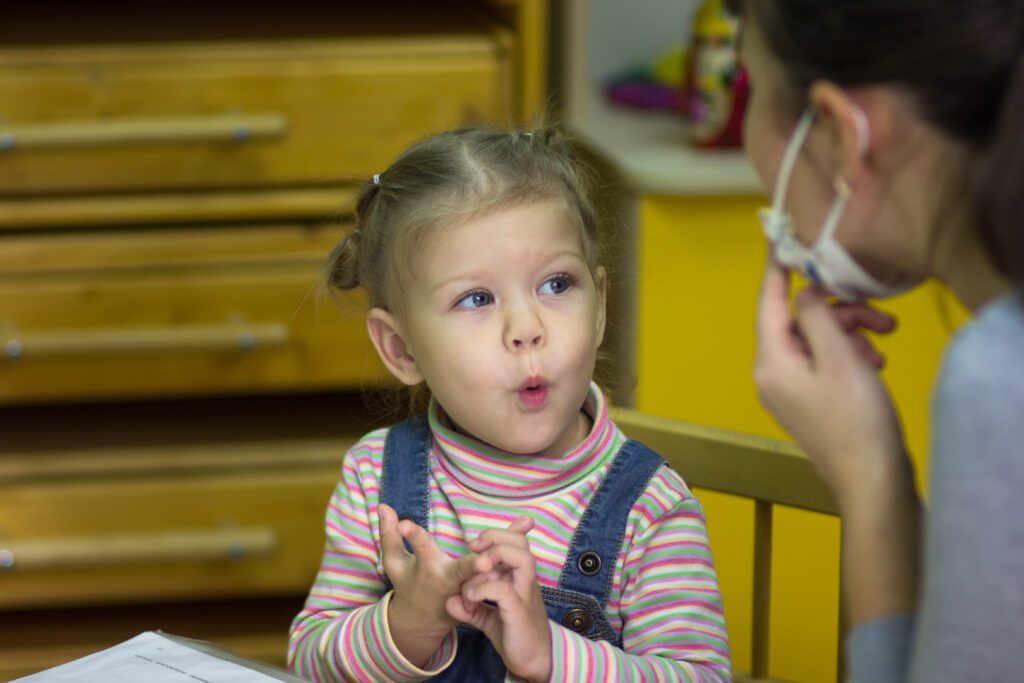
Speech Therapy for Toddlers: 5 Signs Your Child Could Benefit
As a parent, watching your toddler develop language skills is both exciting and rewarding. Every new word, phrase, and conversation feels like a milestone. But what if your child isn’t meeting these speech and language milestones as expected? While every child develops at their own pace, some toddlers may require extra help to develop strong communication skills.
This is where speech therapy for toddlers can make a difference. Early intervention is key in addressing speech and language delays, helping children improve their ability to express themselves, understand language, and engage socially. If you’re in Grapevine and wondering whether your child could benefit from speech therapy for toddlers, here are five key signs to look for.
1. Limited Vocabulary for Their Age
By the time toddlers reach the age of two, they should typically have a vocabulary of around 50 words and begin forming simple two-word phrases such as “more milk” or “big truck.” By age three, their vocabulary should expand to 200–1,000 words, and they should be speaking in short sentences.
However, if your toddler isn’t using at least 50 words by their second birthday or struggles to string words together, it could be a sign of a speech delay. While some children are naturally late talkers, it’s important to differentiate between normal developmental variations and actual speech or language disorders.
How Speech Therapy Helps
Speech therapy for toddlers focuses on increasing vocabulary and improving language development through play-based learning. Therapists use interactive activities, songs, and games to encourage toddlers to use more words and phrases in a fun and engaging way. If you’re in Grapevine, you can find local speech therapists who specialize in helping toddlers build essential communication skills.
2. Difficulty Understanding or Following Directions
By 18 months, most toddlers can follow simple one-step commands such as “give me the ball.” By age two, they should be able to follow two-step directions like “pick up your toy and put it in the box.” If your child consistently struggles to understand and respond to instructions, it may indicate a receptive language delay.
Receptive language is the ability to understand spoken words and process information. If a toddler has trouble understanding what’s being said, they may seem unresponsive, confused, or frustrated. This can impact their ability to participate in daily activities and social interactions.
How Speech Therapy Helps
A speech therapist can assess your child’s ability to understand and process language. Through structured activities, visual cues, and repetition, therapists help toddlers improve their comprehension skills. Speech therapy for toddlers in Grapevine can provide targeted interventions to ensure your child can effectively follow directions and engage with others.
3. Unclear Speech or Difficulty Pronouncing Words

Toddler speech isn’t expected to be perfect, but parents should be able to understand at least 50% of what their child says by age two and 75% by age three. If your child’s speech is frequently unclear, or if they struggle to pronounce common sounds like “p,” “b,” “m,” “d,” or “t,” they may have articulation challenges.
Common Speech Sound Issues in Toddlers:
- Substituting sounds (e.g., saying “wabbit” instead of “rabbit”)
- Omitting sounds (e.g., saying “poon” instead of “spoon”)
- Distorting sounds (e.g., slurred or unclear pronunciation)
How Speech Therapy Helps
A speech therapist can assess your child’s articulation and develop personalized strategies to improve speech clarity. Activities may include practicing sounds with visual and tactile cues, using mirrors for self-correction, and engaging in speech-sound games. Speech therapy for toddlers in Grapevine can help address pronunciation challenges early, improving communication and confidence.
4. Frustration or Behavioral Outbursts Due to Communication Challenges
Toddlers who struggle to express themselves may experience frequent frustration, leading to tantrums or withdrawal. If your child often points, grunts, or resorts to crying instead of using words, it may indicate difficulties with expressive language.
Children who cannot effectively communicate their thoughts, wants, and needs often feel misunderstood, which can result in emotional outbursts. These frustrations can also impact their ability to interact with peers and caregivers.
How Speech Therapy Helps
A speech therapist can introduce alternative communication methods, such as gestures, picture boards, or sign language, to help toddlers express themselves. Through structured activities, therapy helps children develop their verbal skills, reducing frustration and enhancing their ability to engage in meaningful conversations. If you’re in Grapevine, local speech therapy for toddlers programs can provide specialized techniques to support your child’s language development.
5. Lack of Social Interaction or Eye Contact
Social communication is an essential part of speech and language development. If your toddler avoids eye contact, has difficulty engaging in back-and-forth conversations, or struggles with turn-taking during interactions, it may indicate a social communication delay.
Children with speech delays sometimes have difficulty making friends because they struggle to initiate or maintain conversations. If your child rarely responds to their name, shows little interest in playing with other children, or has difficulty using gestures, seeking help from a speech therapist may be beneficial.
How Speech Therapy Helps
Speech therapy focuses on improving social communication by teaching toddlers how to engage in conversations, make eye contact, and use nonverbal cues. Through structured play and interactive exercises, speech therapists help children build essential social skills. Speech therapy for toddlers in Grapevine can provide individualized support to encourage better social interactions.
When to Seek Professional Help

If you recognize any of these signs in your child, consulting a specialist in speech therapy for toddlers is an important step. Early intervention can significantly improve your child’s speech, language, and social communication skills.
What Happens in a Speech Therapy Evaluation?
A speech-language pathologist (SLP) will assess:
- Your child’s vocabulary and ability to form sentences
- Their ability to follow directions and understand language
- Speech sound production and pronunciation
- Social communication skills and interaction with others
Following the evaluation, the therapist will create a personalized treatment plan tailored to your child’s specific needs. If you’re in Grapevine, there are many qualified speech therapists who can help your child overcome language challenges.
Final Thoughts
Speech and language development play a crucial role in a child’s ability to express themselves, learn, and form relationships. If your child is struggling with any aspect of communication, speech therapy for toddlers can provide the support they need to thrive.
Parents in Grapevine looking for early intervention options can find local specialists who offer evidence-based therapies to enhance their child’s language abilities. Seeking help early can set the foundation for lifelong communication success.
By recognizing the signs and taking action, you’re giving your child the best opportunity to develop strong, confident communication skills. If you suspect your toddler may need speech therapy for toddlers, don’t hesitate to reach out to a professional in Grapevine today!

